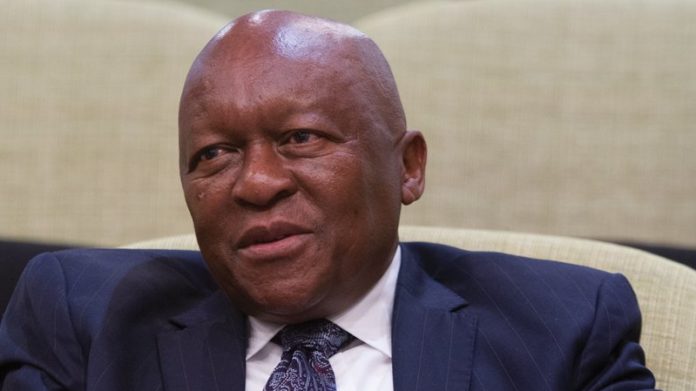
ROYAL Bafokeng Platinum (RBPlat) moved into net cash at the close of its interim period to June on the back of surging rhodium and palladium prices and a weaker rand.
This was despite 45 days of production lost to Covid-19 interruptions, equivalent to 54,000 ounces of platinum group metals (PGMs). The risk of further interruptions was high in CEO Steve Phiri’s assessment for the balance of the firm’s financial year.
“The impact of the shutdown due to national lockdown on production and cost of mining and processing has been severe with the necessary care and maintenance as well as shutdown and restart costs being incurred in the process,” he said in notes to the firm’s interim results today.
RBPlat consequently cut its full-year PGM production guidance to 380,000 to 405,000 ounces down from 450,000 to 480,000 oz as a result of the lockdown and said that its target of reaching 230,000 tons of ore a month at its Styldrift project in the third quarter was now “under pressure”.
Nonetheless, the financial turnaround owing to the highly supportive market and the fact that Styldrift contributed positively to RBPlat’s earnings for the first time, after years of being a cash strain. The company ended on June 30 with R702m in cash compared to net debt of R491m on December 31. The aim was to maintain a net debt to earnings before interest, tax, depreciation and amortisation (EBITDA) ratio of 0.5x through the market cycles, the company said.
Higher metal prices – there was a 77% increase to the basket price per platinum ounce of R43,680 – increased revenue about R1.5bn year-on-year which resulted in the EBITDA margin improving to 45.3% from 16.6% in 2019. EBITDA was R2.1bn compared to R526m last year. Headline earnings were R862.6m, 625% higher year-on-year and basic earnings were 574% higher at some 335.3 cents a share.
This performance stands the company in good stead ahead of reinstating the dividend at the year-end after saying in February it had adopted a 10% of free cash flow payout policy. The balance sheet was in good shape ahead of the year-end dividend.
“Cash allocation is more critical at this time but we have a 10% of cash dividend policy. I must emphasise that it is a minimum of 10% and we can also pay a special dividend,” said Phiri. His CFO, Hanré Rossouw, said it “didn’t make sense” to pay an interim dividend given the level of market uncertainty.
Group capital expenditure for the year is forecast to come in at R1.8bn down from R2.2bn as per original, pre-Covid-19 guidance, with most of the R400m deferred to 2021. RBPlat spent R1.66bn in capex in its 2019 financial year.
“The second half of the year is likely to see the PGM market being less severely impacted by Covid-19 than the first half, but the recovery could be slow and uneven,” the company said in notes to its interim numbers.
According to Phiri, the platinum and palladium markets would remain in a slight deficit for the remainder of the year. However, tightness would continue in the rhodium market; the price of rhodium contributed towards 30% of total RBPlat’s revenue for the half-year following a three-fold in its average price to $4,063/oz.









